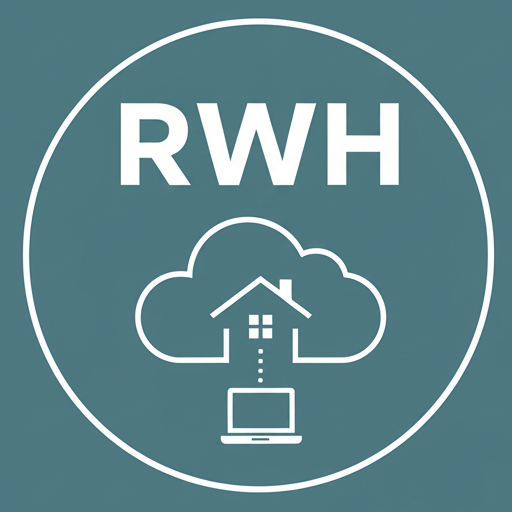
Dealing with loneliness and heartbreak is hard enough, but when you’re working remotely, the challenge is amplified. Your home, which should be your sanctuary, can feel like a prison when it doubles as your office. Memories linger in the spaces you spend the most time in, and isolation can magnify every emotion. For both introverts and extroverts, these feelings can become overwhelming.
The good news is that there are practical ways to process these emotions and move forward. This isn’t about forcing yourself to “be positive” or pretending everything is fine. Instead, it is about embracing the raw reality of your emotions and taking actionable steps to heal. Let’s explore strategies that work, starting with one that is often overlooked.
1. Releasing the Rage
When heartbreak hits, sadness isn’t the only emotion that surfaces. Anger often comes hand in hand, but we are rarely encouraged to express it. Suppressing that rage can lead to pent-up frustration, making it harder to move on.
Instead of bottling it up, find ways to let it out. Here are a few ideas:
- Smash Things (Safely): Use an old item you don’t care about or visit a rage room if one is available. Breaking objects can be surprisingly cathartic.
- Punch It Out: Invest in a punching bag, or if space is limited, try stress balls or even shadow boxing to release that energy.
- Shout It Out: Go somewhere private, such as your car or an empty field, and let out a loud, primal scream. If privacy is an issue, shouting into a pillow can be just as effective.
The goal is not destruction or staying angry. It is about releasing those feelings so they don’t weigh you down. Once you have vented, you will likely find yourself in a better headspace to tackle what comes next.
2. Gaming as a Mental Escape
For many remote workers, gaming isn’t just a pastime. It is a lifeline. When emotions run high, games can serve as a mental refuge, pulling your focus away from the spiral of overthinking.
- Story-Driven Games: Immersive narratives can help you escape into another world. Titles like The Witcher 3 or Red Dead Redemption 2 are great for this.
- Fast-Paced Action: Games that require quick reflexes, such as Call of Duty or Apex Legends, keep your mind too occupied for emotional distractions.
- Community Gaming: Multiplayer games offer social connection without the pressure of face-to-face interaction. Whether you are raiding in World of Warcraft or teaming up in Fortnite, gaming can provide a sense of camaraderie.
Choose games that match your mood, and don’t hesitate to lean into them. Gaming is not just about escape; it is about giving your brain something constructive to focus on. I already made a post regarding Gaming for Remote Workers: Boosting Productivity, Creativity, and Mental Health and How Gaming Can Supercharge Your Productivity: Boost Focus, Creativity, and Time Management.
3. Transforming Your Environment
When your home is tied to memories of a past relationship, every corner can feel like a reminder. To move forward, consider reclaiming your space:
- Rearrange Your Furniture: Even small changes can make a big difference. Shift your desk, change your wall art, or add something new like a plant or lamp to refresh the energy of the room.
- Deep Clean: A thorough cleanout can feel symbolic, removing the old to make space for the new.
- Redecorate: Replace items tied to memories with things that reflect your current self. Even swapping out a chair or adding a new throw blanket can make your space feel like it is truly yours again.
Transforming your environment isn’t just about aesthetics. It is about creating a fresh start in the place where you spend most of your time.
4. Finding Connection in Isolation
Loneliness after a breakup is tough, especially when working remotely. Even introverts need some level of connection. Here are a few ways to build it:
- Virtual Communities: Join online groups that align with your interests, whether they are gaming forums, productivity-focused Slack channels, or hobbyist subreddits.
- Online Coworking: Platforms like Focusmate or virtual coworking events give you a sense of shared purpose, even if you are not actively talking to anyone.
- Reach Out: If you are missing social interactions, reconnect with friends, family, or old colleagues. Even a quick video call can lift your spirits.
Connection doesn’t always have to be deep or intense. Sometimes, casual conversations or shared experiences are enough to make you feel less alone.
5. Balancing Emotional Expression with Rebuilding
While it is crucial to release emotions like anger or sadness, it is equally important to rebuild. Start small:
- Set Micro Goals: Accomplish one small thing daily, such as organizing a drawer or writing down a few thoughts.
- Establish a Routine: Create structure in your day, even if it is as simple as starting work at the same time each morning.
- Practice Movement: Physical activity, whether it is walking, yoga, or hitting the gym, helps process emotions while boosting your mood.
Balancing emotional release with rebuilding gives you a pathway forward, one step at a time.
6. The Jolt of Reality: Slap Therapy
Sometimes, when emotions spiral out of control, what is needed isn’t soft words or meditative calm. It is a sharp, sudden jolt to snap you out of it. This might sound bizarre, but a well-placed slap (administered by a trusted friend or even yourself) can act as an emotional “factory reset.”
Think of those scenes in movies where someone is panicking, and a friend slaps them to bring them back to their senses. It is not just a comedic trope. There is actual science behind it. A sudden physical sensation like a slap can interrupt your spiraling thoughts and bring you back to the present moment.
- How It Works: The shock of the slap triggers your nervous system, temporarily overriding overwhelming emotions.
- The Key to Effectiveness:
- It Must Be Unexpected: The element of surprise is what makes it effective. If you see it coming, it loses its “shock value.”
- One-Time Action: A single slap is enough to do the job. Repeated slaps are unnecessary and could cause chaos. The goal is not to start a slap fest but to reset your emotional state.
- When to Try It: If you are spiraling into anxiety or losing grip on reality, a light slap (done safely and without anger) might help bring you back to the present. Just make sure it is consensual and delivered by someone you trust or even yourself.
This approach is unconventional and a little humorous, but it works as a quick jolt to break free from emotional overwhelm when all else fails.
Moving Forward
Healing from heartbreak or coping with loneliness as a remote worker is no easy task. But by releasing your emotions, engaging your mind, reclaiming your space, and connecting with others, you can slowly find your footing again. It will not happen overnight, but every small action you take is a step toward a stronger, more resilient version of yourself.

Pingback: How Failure Shapes Success: Why Nobody Wants to Hear It